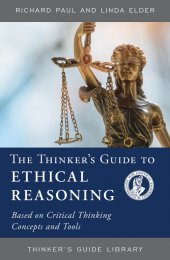Ethical reasoning plays a crucial role in navigating the complexities of modern society, especially within academic settings like Harvard University. Michael Sandel’s renowned “Justice” course not only introduces students to philosophical concepts but also fosters civil discourse among participants, allowing them to engage in polarized discussions about pressing ethical dilemmas. By examining classic theories on morality, students debate relevant issues that resonate with current global challenges. As the course returns to the traditional lecture hall after years of online availability, it revitalizes ethical reasoning through vibrant discussions that inspire critical thinking and reflect on justice in our communities. This powerful exploration invites students to apply cool-headed reasoning to red-hot topics and encourages a deeper understanding of the implications their beliefs hold in a diverse society.
When tackling ethical dilemmas, one must often engage in moral reasoning, a process that involves scrutinizing the principles of right and wrong. Terms like moral philosophy, normative ethics, and civic engagement come into play within discussions reminiscent of the renowned program led by Michael Sandel. Sandel’s “Justice” not only helps students dissect contentious issues but also promotes respectful debate, paving the way for informed opinions amidst divisive narratives. The resurgence of in-person components of this course at Harvard University enhances the communal learning experience, strengthening bonds among peers as they grapple with concepts of fairness and equality. This dynamic approach to ethical inquiry reshapes how we perceive and participate in societal debates.
Reviving Ethical Reasoning at Harvard: The Return of Michael Sandel’s Justice Course
Michael J. Sandel’s return to Harvard with his iconic course, “Justice: Ethical Reasoning in Polarized Times,” signifies a pivotal response to the current climate of strained discourse across college campuses. This course, initially launched in 1980, has evolved over the years, captivating students with its unique approach that involves guided debates on pressing ethical dilemmas. Sandel’s methodology is particularly relevant today, as it encourages students to engage in civil discourse, challenging them to explore complex questions about morality and justice amidst polarized discussions.
The resurrection of ‘Justice’ brings a dynamic shift back to campus where students can actively examine their beliefs. Through discussions that juxtapose high culture and pop culture, such as debates around Shakespeare and modern sitcoms, students are invited to think critically about the ethical implications of their preferences. This course not only enlightens students about philosophical theories such as Utilitarianism but also helps them cultivate the ability to articulate their perspectives civilly and respectfully.
The Importance of Civil Discourse in Today’s Academic Environment
In light of recent surveys indicating a decline in civil discourse among students, Michael Sandel’s course places significant emphasis on fostering an environment where ideas can be exchanged without hostility. The need for civil discourse is paramount, particularly in polarized discussions that characterize modern society. Sandel’s efforts to include faculty-led discussions and workshops that promote healthy debates further underline the urgency of restoring amiable discourse within academia.
Students like Maia Hoffenberg have pointed out that the current academic atmosphere tends to entrench individuals in their ideologies, making it difficult to engage meaningfully with opposing viewpoints. By introducing platforms where students can voice their opinions while remaining open to differing perspectives, Sandel’s class is cultivating a new generation equipped to tackle ethical dilemmas and contentious issues head-on, thereby enhancing the overall health of academic dialogue.
Utilitarian Philosophy: Bridging Pleasure and Purpose
Utilitarianism, as introduced in Sandel’s class, serves as an intellectual bridge connecting pleasure with moral purpose. Sandel’s discussions about the moral implications of wealth—like the hypothetical situation where one might choose between becoming a physician or earning money to donate—challenge students to reflect on their values and the broader impact of their choices. This philosophical framework invites students to weigh personal pleasure against their societal responsibilities, illustrating the intricate dance between self-interest and civic duty.
The challenge posed to students serves not only to deepen their understanding of Utilitarian thought but also to enhance their ethical reasoning skills as they navigate complex moral landscapes. By contextualizing classical ethical theories within contemporary issues such as cryptocurrency and philanthropy, Sandel encourages students to scrutinize their motivations and the moral ramifications of their actions. This approach empowers them with a lens through which they can evaluate their decisions moving forward.
Philosophy Meets Pop Culture: Analyzing the Simpsons and Hamlet
An intriguing aspect of Sandel’s course is its integration of pop culture references, such as the juxtaposition of “The Simpsons” with Shakespeare’s “Hamlet.” This playful yet profound examination of high and low culture not only engages students but also raises significant questions about the nature of enjoyment and its ethical implications. When students debate which form of entertainment holds greater value, they are simultaneously exploring deeper philosophical concepts about the appreciation of art and its role in society.
This method of analysis encourages students to think critically about their preferences and the reasons behind them, thus enriching the discourse around what is deemed significant or worthy in various contexts. The resulting conversations illuminate the gaps between fleeting pleasure and the intellectual nourishment derived from classic literature, making philosophical discussions accessible and relevant to the everyday experiences of Harvard students.
Harnessing Technology to Broaden Access to Ethical Education
Sandel’s innovative use of technology in making his course available online marks a transformative shift in educational accessibility. By recording his lectures and distributing them widely, he democratizes the learning experience, allowing millions worldwide to engage with complex ethical discussions. This experiment not only showcases the potential of digital platforms in higher education but also reflects Sandel’s commitment to expanding philosophical discourse beyond the confines of the traditional classroom.
The impact of this availability is evident, as evidenced by the staggering viewership of over 38 million people on platforms like YouTube. Such access not only invites diverse perspectives into the conversation but also fosters a global dialogue on justice and ethics. By utilizing modern technology to disseminate his teachings, Sandel exemplifies how educators can leverage available tools to reach wider audiences and inspire a global community engaged in ethical reasoning.
Engaging First-Year Students: A Welcome to Ethical Discourse
The influx of first-year students taking Sandel’s course illustrates a yearning for ethical inquiry and discourse at Harvard. Many students, already familiar with Sandel’s work through high school studies, view enrollment in ‘Justice’ as an essential part of their academic experience. This eagerness indicates a proactive approach to understanding complex ethical issues from the outset of their college education, preparing them for future discussions that will shape their societal engagement.
Engagement in such a captivating course from the beginning provides students the tools to dissect real-world ethical dilemmas while collaborating with peers in a thought-provoking environment. By challenging them to articulate their views and confront differing opinions, Sandel is laying the groundwork for a generation of leaders who are prepared to tackle pressing moral issues with integrity and respect.
Exploring Contemporary Issues Through Ethical Lenses
Sandel’s course not only revisits classic ethical theories but also applies them to pressing contemporary issues, such as climate change, social media’s impact, and wealth inequality. This approach ensures that students can connect ethical concepts to real-world situations, thereby enhancing the relevance of philosophical discourse in today’s context. By dissecting these modern dilemmas through the lens of historical theorists like John Rawls or Immanuel Kant, students learn to appreciate the complex layers of decision-making processes.
As students engage with topics that resonate with their personal experiences and the world around them, they are encouraged to develop a nuanced understanding of ethical reasoning. By addressing questions that challenge the status quo, such as the efficacy of charitable actions versus structural change, Sandel equips students with the analytical tools needed to navigate an increasingly complex societal landscape.
The Role of Student Feedback in Shaping Effective Learning
Sandel’s decision to relaunch the ‘Justice’ course was heavily influenced by student feedback about the state of dialogue on campus. This responsiveness highlights the importance of student voices in shaping educational curricula that resonate with their needs and concerns. By actively seeking input from students, Sandel demonstrates a commitment to creating an inclusive learning environment that adapts to the evolving needs of its participants.
The focus on civil discourse illustrates how student feedback can guide educators in addressing gaps in dialogue and encouraging open conversations on contentious topics. This iterative process of improving the course based on student insights reflects a broader commitment to enhancing the academic experience, ensuring that students not only learn about ethical reasoning but can also practice these skills in everyday interactions.
Creating a Legacy of Ethical Leadership and Civic Engagement
Through his influential teachings, Michael Sandel is fostering a culture of ethical leadership and civic engagement among Harvard students. Graduates of ‘Justice’ often carry the lessons learned into various fields, emphasizing the importance of moral reasoning in governance, law, and other areas profoundly impacting society. Notable alumni, including Supreme Court Justice Ketanji Brown Jackson and former U.S. Attorney Preet Bharara, exemplify the course’s enduring legacy in shaping leaders who value ethical considerations in their professional lives.
The legacy of Sandel’s course extends beyond academia, touching on the very foundations of a democratic society whereby educated individuals are equipped to contribute meaningfully to public discourse. As students navigate their careers, the ethical frameworks instilled during their time in ‘Justice’ will serve as guiding principles, encouraging them to engage thoughtfully with complex societal challenges and uphold the tenets of justice and fairness within their communities.
Frequently Asked Questions
What role does ethical reasoning play in Michael Sandel’s Justice course at Harvard University?
Ethical reasoning is central to Michael Sandel’s Justice course, where students engage in debates on moral dilemmas using classic theories on justice and ethics. This approach not only enhances their understanding of civil discourse but also prepares them to tackle polarized discussions on contemporary issues.
How does the Justice course by Michael Sandel facilitate civil discourse in polarized discussions?
The Justice course encourages civil discourse through structured debate and guided discussions on ethical reasoning. By examining complex moral questions, students learn to articulate their views while considering opposing perspectives, fostering a culture of respectful dialogue amid polarized discussions.
What are some ethical reasoning frameworks explored in the Justice course?
In the Justice course, students explore various ethical reasoning frameworks, including Utilitarianism by John Stuart Mill, Kantian ethics, and the social contract theory by John Rawls. These frameworks are applied to contemporary issues like climate change, social media ethics, and affirmative action, enriching students’ understanding of justice.
How can ethical reasoning help address issues like climate change discussed in the Justice course?
Ethical reasoning provides a framework to analyze the moral implications of climate change in the Justice course. Students debate the responsibilities of individuals and governments, as well as principles of fairness and justice regarding environmental impacts, leading to deeper insights into effective solutions.
What impact does the Justice course have on students’ perspectives on ethical dilemmas?
The Justice course significantly impacts students’ perspectives by challenging them to examine their ethical reasoning. Through dialogue about topics like philanthropy and socioeconomic disparities, students develop a nuanced understanding of justice, influencing their views on ethical dilemmas in society.
How does Michael Sandel’s teaching style promote engagement in ethical reasoning?
Michael Sandel’s teaching style promotes engagement in ethical reasoning by asking provocative questions and encouraging students to think critically about their beliefs. By fostering lively debate and personal reflection, he allows students to apply philosophical concepts to real-world issues, enhancing their learning experience.
In what ways does the Justice course prepare students for real-world ethical challenges?
The Justice course prepares students for real-world ethical challenges by equipping them with critical thinking and ethical reasoning skills. Students learn to navigate complex moral issues and engage in constructive discussions, thereby becoming more informed and responsible citizens in a polarized society.
Why is ethical reasoning essential in today’s polarized discussions?
Ethical reasoning is essential in today’s polarized discussions because it helps individuals understand differing viewpoints and engage in meaningful dialogue. By emphasizing the importance of respectful debate and moral consideration, courses like Sandel’s Justice promote a more civil and thoughtful discourse in society.
| Key Point | Details |
|---|---|
| Course Overview | Michael J. Sandel’s ‘Justice’ course emphasizes guided debates on ethical reasoning and moral decision-making, returning to in-person classes after years. |
| Engagement Strategy | Students discuss contemporary issues using classic philosophical theories, fostering deep engagement. |
| Course Popularity | Originally launched in 1980, the course has impacted many students, including notable alumni, and has gained significant online viewership. |
| Contemporary Issues | Topics covered include climate change, artificial intelligence, and the challenges of civil discourse on college campuses. |
| Philosophical Foundations | Key philosophers discussed include John Stuart Mill, Jeremy Bentham, and Aristotle, with a focus on Utilitarianism. |
| Student Experience | Students express that debates and discussions in class encourage deeper understanding of their own views and the views of others. |
Summary
Ethical reasoning plays a crucial role in navigating today’s polarized discourse. As highlighted in Michael J. Sandel’s ‘Justice’ course at Harvard, students engage with high-stakes ethical dilemmas that challenge their perceptions and values. This reinvigorated course serves as a platform for robust discussion and debate, pulling from both historical philosophical frameworks and contemporary issues. By fostering an environment where diverse opinions are explored, Sandel’s approach cultivates a deeper understanding of ethical reasoning, which is essential for civil discourse in our increasingly divided society.



